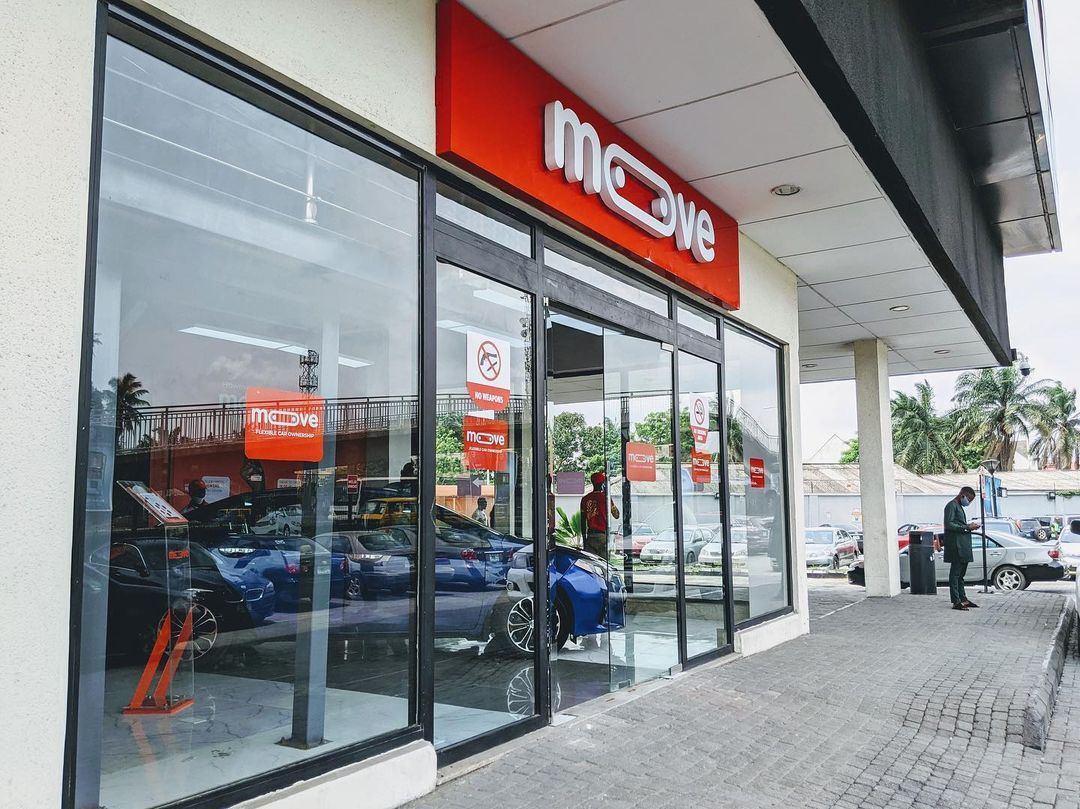David Ayoola,* a driver under Moove’s vehicle-financing scheme, has been out of work since February 2023. Before then, he had been using a vehicle gotten from the vehicle-financing company on Uber, but after sending it in for repairs, he did not get the car back.
Ride-hailing startups provide Nigerians with a comfortable way to move around in some of its largest cities. They also provide a decent source of income for their drivers.
However, becoming a driver on Bolt or Uber — Nigeria’s most popular ride-hailing platforms — is fraught with challenges. Drivers must own a car that was produced not earlier than 1999. But with low purchasing power and low credit penetration, getting these cars is out of many Nigerians’ reach.
Enter Moove, a mobility fintech startup founded in 2019 and backed by investors such as British International Investment, Future Africa, and AfricInvest. Moove provides car financing solutions for ride-hailing drivers under a ride-to-own scheme.
Rather than requesting drivers to pay a portion of the vehicle’s cost like its competitors, drivers sign an agreement to remit a portion of their daily earnings to the company until they complete the payment for the vehicles. Payment terms range from 18 to 48 months.
The scheme has quickly caught on and in 2022, Moove purchased 5,000 vehicles for drivers in Nigeria and Ghana. But less than a year on, it has hit a snag.
Rest of World recently revealed that the company has moved to repossess some of the vehicles it issued as some drivers defaulted on their payments.
“Any vehicles that have been impounded were done so as a result of customers not hitting the new KPIs [key performance indicators] as part of the Moove Cares programme,” a company spokesperson said.
Broken incentives
At some point, drivers who got their vehicles through Moove were required to drive for 12 hours, six days a week, while remitting ₦9,400 ($20), but some of its drivers’ protests saw those numbers slashed. We gathered that under the new terms, they are required to make ten trips over eight hours, thirty minutes, and remit ₦6,500 ($14). But where they are unable to do this, they must pay ₦9,400 ($20).
Drivers complain that while the scheme provides them with a source of income, the terms are unfavourable as they also have to pay a commission to Uber, fuel their vehicles, and make minor repairs. Although Moove is expected to fix their vehicles, the drivers say this is not always done on time.
Yinka* discloses that the long hours the drivers work makes them susceptible to illness, making it more likely that they miss some payments. He also adds that it is common for drivers to meet their KPIs only to find out that they have very little money to keep for themselves.
Part of the reason for this is Uber’s pricing. Trips over long distances ideally pay more, but the drivers say it is common to take long trips for fares they consider inadequate.
Yinka does not blame Moove for Uber’s pricing, but he would like the company to speak with Uber to improve their rates and possibly charge a commission on fares above a certain threshold. However, he acknowledges that the ride-hailing giant will be reluctant to change its prices in a price-sensitive environment like Nigeria’s.
Balancing priorities
In 2022, Safeboda witnessed a mini exodus as drivers, feeling undervalued, left the startup for other bike-hailing platforms.
SafeBoda entered the Ugandan market promising drivers bonuses ranging between 50% and 100% of the trip fare.
As users grew and it began to prioritise its fintech vertical, it dropped the bonuses to 15% and began charging drivers a commission. In response, the drivers began leaving the platform as these changes reduced their earnings.
Moove appears to be going through the same challenges. While most drivers on the platform appreciate being able to get a car without a down payment, their low earnings leave them dissatisfied.
The Moove Driver Care programme started in response to complaints about driver welfare. One discloses that it offered a health insurance package, but he has not been able to complete the registration process.
Another driver acknowledges the provision of a health insurance package, but insists that he has never been able to access it and does not know any driver who has.
“The HMO they promised us, we didn’t see anything. I was on admission for almost two weeks. Still, anytime I sent a mail that I was not feeling fine, they will tell me to come and drop their car,” he says.
Although drivers were told they could have a two week leave annually, he claims they still have to pay ₦9,400 ($20) to Moove while on leave. This also applies when they are ill.
Between December 2022 and March 2023, Nigerians had to deal with fuel and cash scarcity. He adds that these events also affected the drivers who were unable to meet up with Moove’s demands. Moreover, Moove has done away with the annual leave policy, leaving the drivers with only Sundays free.
Where drivers have defaulted on payments, he laments the recovery tactics used by Moove agents.
“They use these men of the Nigerian Legion as [their] recovery team. They will come after drivers while drivers are driving, while you have guarantors of these guys. If at all you want to recover a car, why not go to the guarantor’s house since you requested all these details instead of coming after drivers while they’re driving.”
Can a drive-to-own scheme succeed in Nigeria?
The dispute between Moove and some of its drivers is not uncommon. Insufficient credit offerings in the country mean there are more potential borrowers than there are lenders. However, given the absence of a credible identity management system or even a credit scoring system, startups must find sustainable ways to recover their loans.
A common practice has been to offer small loans to users with which they build their credit history with the lender. Buy now, pay later startups like Carbon also request users to pay 25% of the cost of a product upfront, while CDcare only delivers products after a user pays half of its cost.
Asset financing startups often take consolation in their ability to recover the financed assets in the case of defaults. However, Moove operates a slightly different business model where it commits a significant amount of money upfront when it purchases vehicles and will be unable to recover it for a while.
Though Moove gives out vehicles without a down payment, it installs trackers in them. They help it monitor a vehicle’s location and remotely turn it off when required. However, this is not foolproof as trackers can be removed by drivers.
Moove’s inability to get all of its drivers to pay is not surprising, given its business models’ challenges.
Popularly known as a hire-purchase agreement, the practice is almost as old as the country itself, with the first regulation enacted in 1965. It is also more commonly used in the transportation sector.
But with its benefits come disadvantages. Getting the hiree to adhere consistently to the payment agreement is a common challenge, as they frequently come up with reasons they can’t pay.
Even when they are willing to pay, they may be unable to do so because of unforeseen circumstances. In such cases, the hirer could repossess the vehicle, leaving the hiree empty-handed as they not only give up the vehicle but also previous payments.
Hirees are not the only ones who can be dubious, with hirers often ending agreements over petty issues so that they can keep the vehicles for longer. The long repayment periods also mean that hirees could lose motivation before the time runs out.
That Moove has the same challenges, despite employing technology is another indication that technology is often not enough to solve systemic issues.
So what next?
From a purely business perspective, Moove may be better served operating in markets with more advanced credit infrastructure. That way, some of the burden of financing the vehicles is shared with its financing partners.
Should it decide to stick it out in Nigeria, it would have to make certain changes. An obvious one would be introducing some flexibility into the payment process.
Conversations with drivers show that between paying commissions to Uber, fuelling the cars, and remitting money to Moove, they mostly have little money left over for themselves. This presents a problem as drivers are not incentivised to give their best.
Additionally, it may have to provide personalised service to the drivers to ensure that the platform works for every person or at least the majority. But considering it laid off employees last year, that may not be feasible.
Conducting extensive due diligence on potential drivers is also required, and could mean they have to build out a credit scoring system like the fintechs mentioned earlier. However, unlike the fintechs, their processes will have to be more elaborate considering they stand to lose so much more. Of course, this may come at the cost of slower expansions, but it is a fair price to pay to ensure the business stays alive.
*Names of the drivers have been changed at their request.









